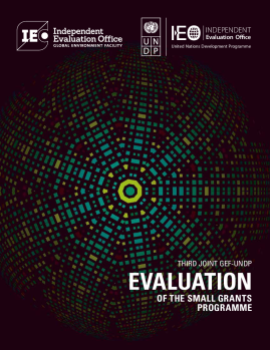The GEF created the Small Grants Programme (SGP) in 1992 with the explicit aim of developing community-led and -owned strategies and technologies for reducing threats to the global environment—notably in connection with biodiversity loss, mitigating climate change, land degradation and protecting international waters, chemical and waste management - while addressing livelihood challenges. Implemented by the United Nations Development Programme (UNDP), the SGP provides small grants - up to a maximum of $50,000—to needy communities to support the use of practices and technologies that benefit the global environment.
In 2008 and 2015, the SGP was jointly evaluated by the independent evaluation offices of the GEF and UNDP. This third joint GEF-UNDP SGP evaluation covers the period since July 2014, which was the cut-off date for the 2015 joint evaluation of the SGP, to December 2019. The main objective of this joint evaluation is to build on the findings of, and evaluate progress made, since the 2015 joint SGP evaluation and the extent to which the SGP is achieving the objectives set out in its strategic and operational directions under GEF-6 (2014-2018) and GEF-7 (2018-2022). The evaluation will also assess the relevance and strategic positioning of the SGP within the GEF and provide recommendations on the way forward for the SGP.
